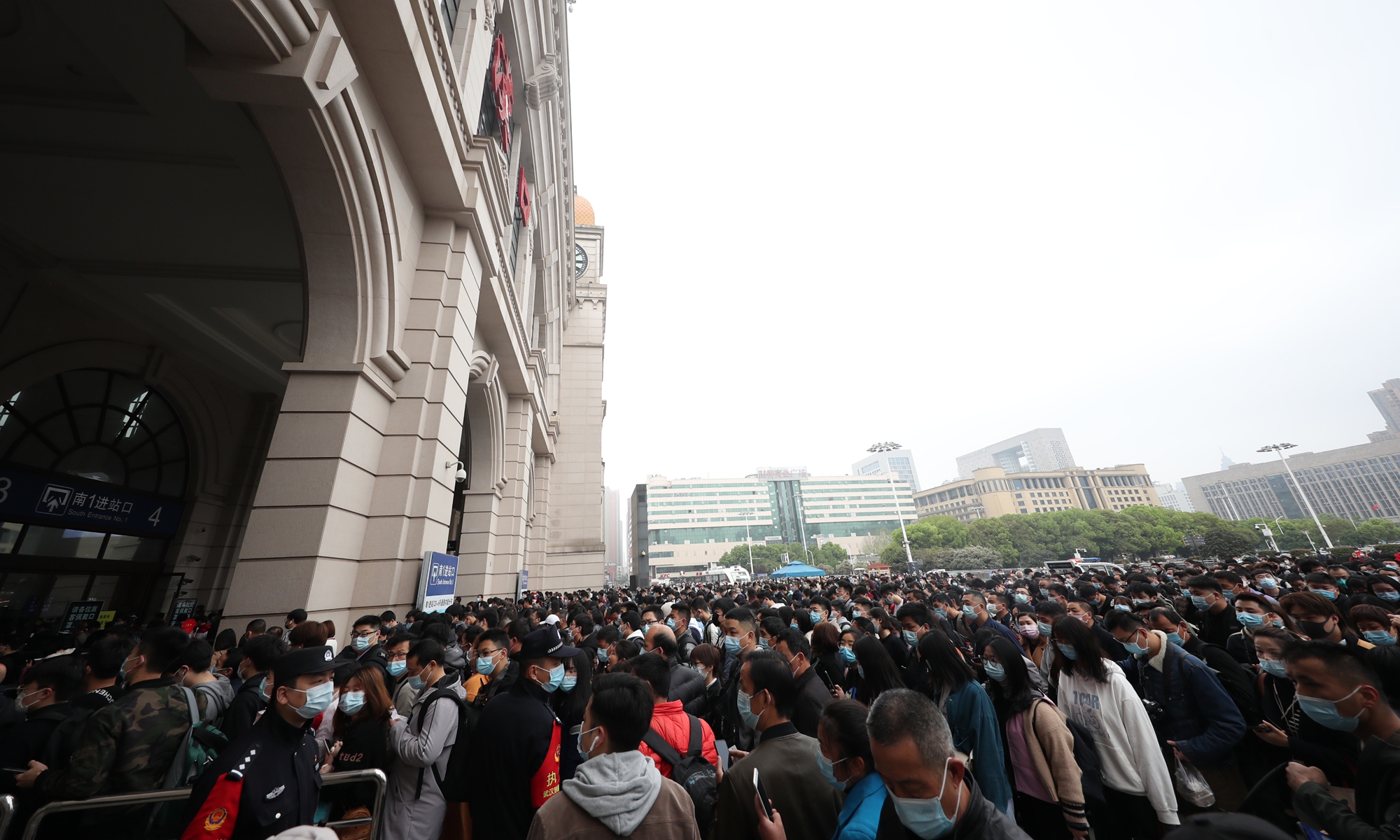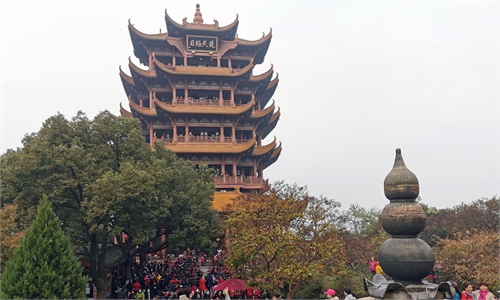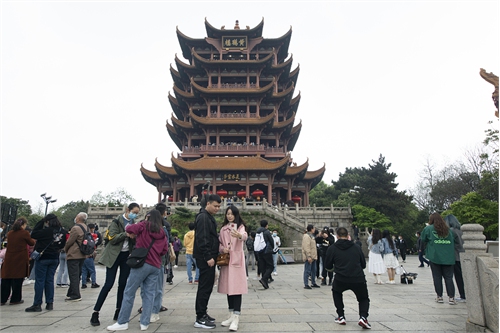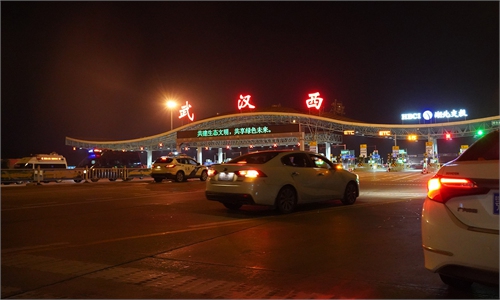
Two police officers look on while travelers enter the Hankou Railway Station in Wuhan on Saturday, the first day of the Qingming Festival holidays. Photo: VCG
Standing on the pedestrian overpass near Tongji Hospital on Tuesday morning watching the crowds, listening to people talk, hearing the sound of car horns in the rush hour, smelling the aroma of baked sweet potatoes from street vendors, one can easily portrait a normal business day in April in Wuhan, capital of Central China's Hubei Province.
But If you look down at the words printed every other meter on the glass railings on either side of the overpass, such as "Tianjin medical team, 1,307 people in total, aided Wuhan," and "Jilin Province medical team,1,209 people in total, aided Wuhan," you know that behind those seemingly cold, few words are numerous hot beating hearts from tens of thousands of medics nationwide who came to aid the hardest-hit coronavirus city in 2020, and you know this is not just a normal business day in Wuhan; this is what Wuhan and all the Chinese people have been fighting for during the past year. One year after the city's 76-day lockdown was lifted on April 8, 2020, the normal bustling Wuhan has come back.
Chinese people often say children are the future of the country. For Feng Ling, obstetrics department director at Tongji Hospital, each newborn she delivered during the epidemic represented profound significance for her team and for Wuhan.
"Each time, when we safely delivered a baby during that time, we saw hope, we saw the future of Wuhan. We were extremely happy," Feng told the Global Times on Wednesday.
One year later, these "little hopes" grew stronger, bigger, just like Wuhan city and its people.
Shiliu was one of these little "hopes." Feng, who delivered Shiliu, said the hospital just organized a birthday party for Shiliu in February.
Shiliu's parents explained that the boy was named after the fruit pomegranate, which represents that Chinese are like pomegranate seeds that stick together, united in battling the COVID-19.
"Shiliu's birthday party, held when Wuhan was finally stable and when the whole country gained victory in battling COVID-19, is of special significance," Feng said.
Shiliu gained nationwide fame days after he was born in February 2020. He was separated from his parents at birth as his parents were both diagnosed with COVID-19. After a camera was installed near his bedside in the hospital, he gained millions of "cloud parents" as a large number of Chinese netizens kept an eye on him and sent good wishes to him.
At midnight on Monday, there were no long lines of vehicles waiting to pass through the Wuhan West toll station as what happened on midnight April 7, 2020 when thousands of drivers were waiting to leave Wuhan after the city lifted outbound travel restrictions.
Since last summer, drivers passing through the station did not need to show their health code, which saved time.
Li Sheng, an employee of the toll station, told the Global Times that around 20,000 vehicles have passed through the station every day recently, and the number was equal to before the epidemic.
"The city was still deserted and quiet when the lockdown was just lifted, and gradually I saw more vehicles, mostly carrying people to work, and returning to Wuhan," He said.
The past Qingming Festival has seen the number of vehicles passing through the station reaching nearly 30,000 per day, Li said.
The toll station was included in the list of busy toll stations in Wuhan by the local traffic management department during the festival.
One year after the lockdown was lifted, Wuhan people said it's not just the city which has gotten safer; Wuhan people have turned more united, more eager to help others, and have showed more smiles and more respects to medical workers. They also have paid more attention to health and family, more frequently showed up at gyms, and spent more time with their families on holidays.
"Many tourists from other provinces and cities asked about what happened in the epidemic, and I would always tell them Wuhan is the safest city now in the world," a snack store owner surnamed Zhou said, noting that Wuhan people took multiple nucleic acid tests, and all the store owners have been vaccinated.
"Speaking of the COVID-19 vaccine, I was very proud that Wuhan is also a vaccine manufacturing base. Wuhan-produced vaccines are sending hope to all Chinese people and even people in other countries and regions," he said.
The inactivated COVID-19 vaccine produced by Sinopharm's Wuhan institute was granted conditional market approval in February, and the annual production capacity of the vaccine reaches 100 million doses.
The Global Times learned from the institute on Wednesday that it is expanding its annual production capacity with the first-phase construction of an expansion project located in Jinggang industrial park expected to be finished by May. After the project is completed, the annual production capacity of Wuhan-produced COVID-19 vaccine is expected to increase to 1 billion doses.





